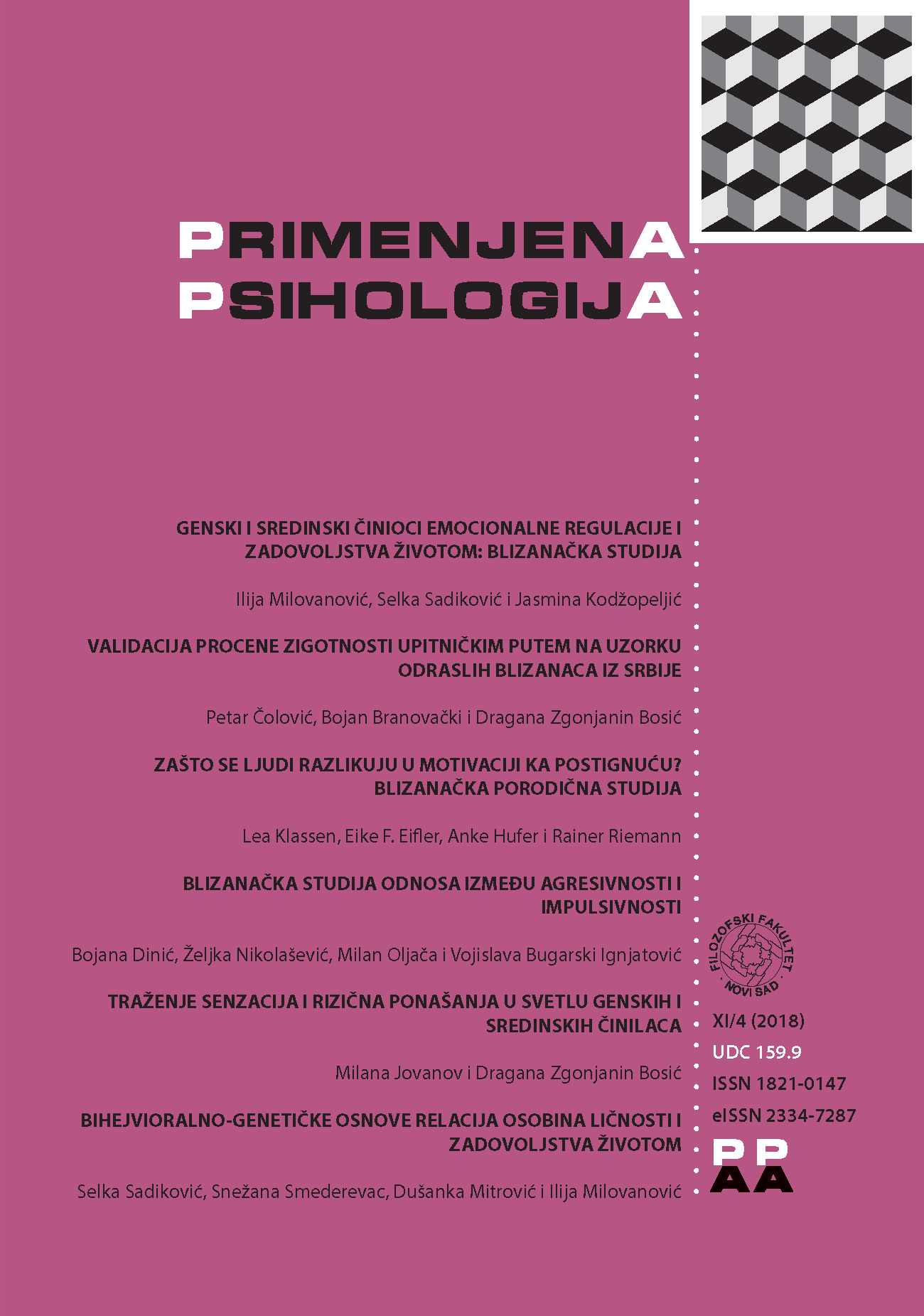BEHAVIORAL GENETICS FOUNDATIONS OF RELATIONS BETWEEN PERSONALITY TRAITS AND SATISFACTION WITH LIFE
DOI:
https://doi.org/10.19090/pp.2018.4.487-502Keywords:
FFM, multivariate genetic modeling, satisfaction with life, twin studyAbstract
The long-term stability of subjective wellbeing has directed an attention to stable dispositions as the probable source of individual differences in the satisfaction with life (SWL). The main objective of this study was to examine the extent of genetic overlap between SWL and personality traits of the five-factor model (FFM). The sample consisted of 121 monozygotic and 61 dizygotic twin pairs (the average age was 24.59, SD = 7.11). Satisfaction with Life Scale and The Revised NEO Personality Inventory (NEO-PIR) were applied. Multivariate genetic modeling was performed. The results show the most appropriate fit indices for Independent AE model(χ²/df = 1.41, CFI = .92, TLI = .91, RMSEA = .07, AIC = 17400.81, BIC = 17558.68, SRMR = .10). SWL and all NEOPI- R personality traits have a moderate to strong genetic bases, while the common genetic influences for SWL are 40%. The results show that unique environmental contributions are moderate to strong (from 61% for Neuroticism, 41% for SWL, to 23% for Conscientiousness). Genetically driven tendency common to Neuroticism, Extraversion, and Conscientiousness, underlines individual differences in SWL, and therefore a cognitive evaluation of SWL seems to be substantially based on emotional tendencies encompassed by the FFM. Also, SWL appears to be uniquely environmentally influenced, which implies benefits of wellbeing interventions through the process of learning or adopting a different life philosophy.







